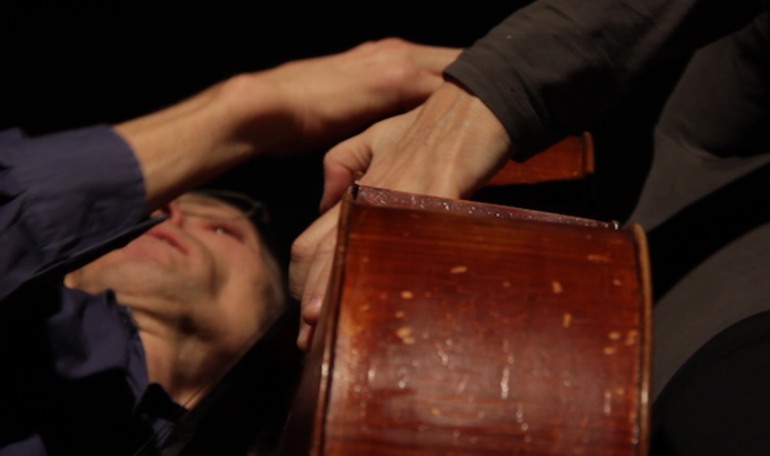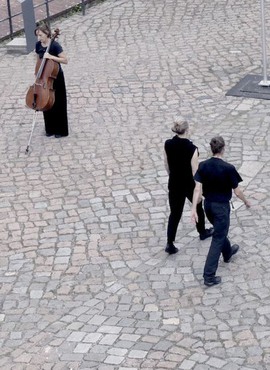Turning around

Photo: Ulrike Brand
To go in the opposite direction before having reached the destination. Change my mind, turn around. React to an unforeseen event and turn back. Walk the same path again in the opposite direction. Return to the starting point and open up new paths. Reversing my plans and turning back to see if another plan is a better fit.
Turning my thoughts around. Reversing a cup. Reversing a sequence of notes. To make someone turn back. To move, to change one's mind.
In improvisation, "to reverse" may mean inhibition: the spontaneous or planned prevention of a process. It can be a principle of artistic design that is intended to prevent certain mechanised or automated processes, which is intended to break linear sequences. It may be a guiding idea that prefers the fragment and the broken to the flowing, linear. Instead of entering during a silence, I can block the impulse and delay the entrance or do without. An impulsive dynamic fortissimo I can suddenly transform into its opposite, a very quiet, flat passage.
Related terms which have to do with the movement of the body or an object are: to reverse or to turn upside down. To turn a glove inside out, to turn from my back to my stomach, a type of movement, a figure of speech. In musical composition, one speaks of inversion or mirroring when the intervals of a sequence of notes are reversed on a mirror axis: a minor third up becomes a minor third down. Musical-compositional inversion is significant in the compositional method of the fugue, which was then taken up again by Arnold Schönberg in twelve-tone music, a strict method in which the direction of the musical theme is decisive for the composition - the inversion forms the counterpoint here, the negation in dialectical thinking (based on the equivalence of opposites) or the addition to a whole by the "other" half.
Ulrike Brand

Photo: Ulrike Brand

The European Commission's support for the production of this publication does not constitute an endorsement of the contents, which reflect the views only of the authors, and the Commission cannot be held responsible for any use which may be made of the information contained therein.
